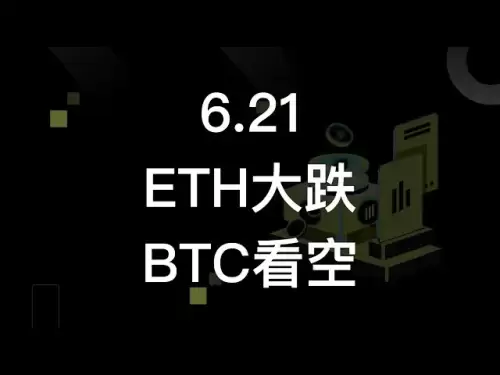Explore the dynamics of 'Toxic Flow, Cancel Wars, Onchain Perps' with Hyperliquid's Jeff Yan, uncovering key trends and insights in the evolving DeFi landscape.

Toxic Flow, Cancel Wars, and Onchain Perps: Hyperliquid's Rise and DeFi's Future
Hyperliquid is shaking things up in DeFi, controlling 75% of onchain perp volume with no VC funding. But what's behind their success and the drama surrounding it? Let's dive into toxic flow, cancel wars, and the future of onchain perps.
Hyperliquid's Dominance in Onchain Perps
Hyperliquid's rise to prominence in the onchain perpetuals (perps) market is nothing short of remarkable. With a staggering 75% of the onchain perp volume, they've achieved dominance without traditional VC funding, relying instead on a massive $1B airdrop to bootstrap growth. This unconventional approach challenges the established norms of crypto protocol development and raises questions about the future of decentralized finance.
The Cancel Wars and Toxic Flow
One of the more controversial aspects of Hyperliquid's approach is their handling of order cancellations and "toxic flow." Jeff Yan, Hyperliquid's founder, has prioritized cancel orders over taker orders, a decision that has ruffled feathers, particularly among high-frequency traders (HFTs). The logic behind this decision is to protect the platform and its users from malicious or manipulative trading practices. This raises a fundamental question: who should DeFi platforms cater to – sophisticated trading firms or everyday users?
CZ vs. Jeff: A Protocol War?
The "cancel wars" aren't the only source of drama surrounding Hyperliquid. A subtle protocol war seems to be brewing with Binance, sparked by the JellyJelly controversy. These incidents highlight the challenges of transparency and competition in the decentralized space. It also demonstrates the importance of community sentiment and reputation in the cutthroat world of crypto.
HIP-3: The Future of Permissionless Perps
Looking ahead, Hyperliquid is betting big on HIP-3, a proposal that could unlock the potential for perps on anything. This would significantly expand the possibilities for decentralized trading and further solidify Hyperliquid's position as a leader in the onchain perp market. If HIP-3 succeeds, it could revolutionize how we think about and interact with decentralized exchanges.
Real Users vs. Predators: Who Matters Onchain?
Jeff Yan's philosophy on building Hyperliquid is centered around prioritizing real users over predatory actors. He believes that some flow simply shouldn't be welcome on the platform. This perspective challenges the prevailing notion that all trading volume is good volume and raises important questions about the ethics of decentralized finance.
So, Are Perps the New Casino?
With zero-DTE options gaining popularity, the question arises: are perps the new casino? The crew debates whether perps can replicate the thrill of a lottery. Maybe. Maybe not. But one thing's for sure: the evolution of DeFi is anything but boring.
In conclusion, Hyperliquid's story is a fascinating case study in the ever-evolving world of DeFi. From their unconventional funding strategy to their controversial handling of toxic flow, they're challenging the status quo and forcing us to rethink the fundamentals of decentralized finance. And who knows, maybe they'll airdrop me some tokens someday. A guy can dream, right?
Disclaimer:info@kdj.com
The information provided is not trading advice. kdj.com does not assume any responsibility for any investments made based on the information provided in this article. Cryptocurrencies are highly volatile and it is highly recommended that you invest with caution after thorough research!
If you believe that the content used on this website infringes your copyright, please contact us immediately (info@kdj.com) and we will delete it promptly.














































































